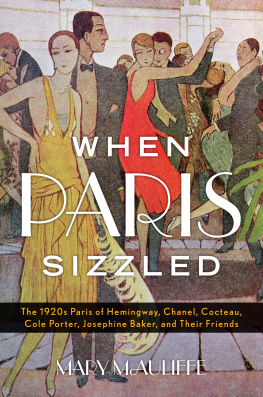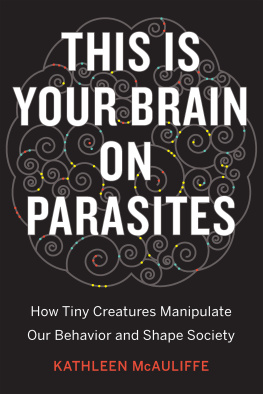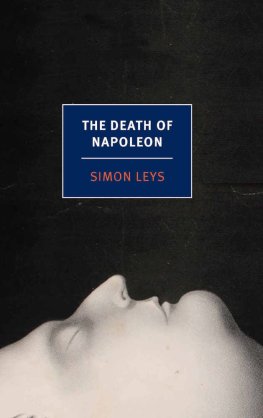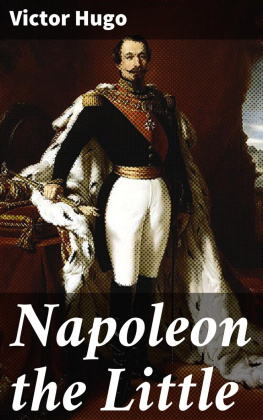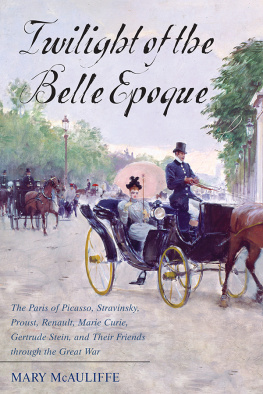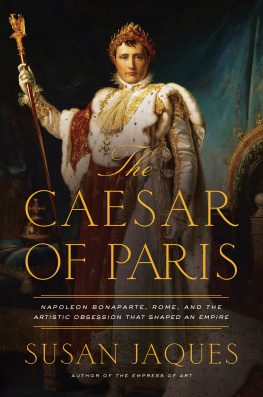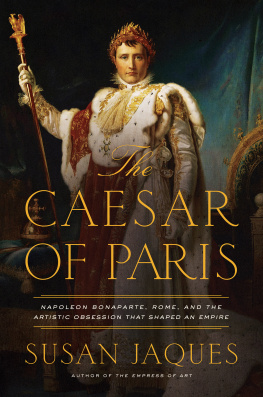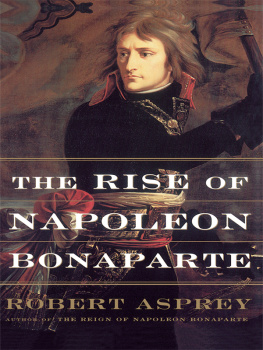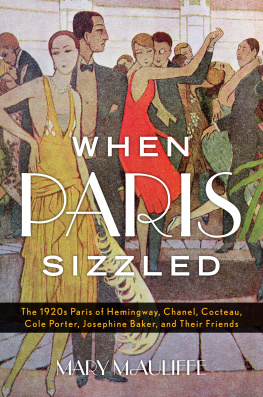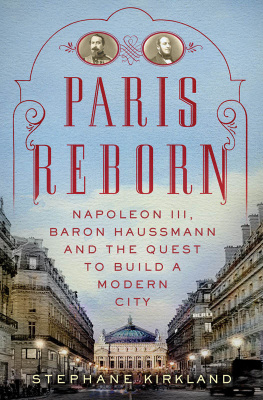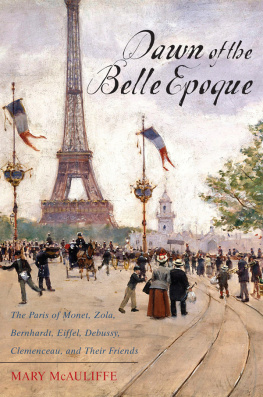Mary McAuliffe holds a PhD in history from the University of Maryland, has taught at several universities, and has lectured at the Smithsonian Institution, the Barnes Foundation, and the Frick Pittsburgh. She has traveled extensively in France, and for many years, she was a regular contributor to Paris Notes. Her books include Paris Discovered, Dawn of the Belle Epoque, Twilight of the Belle Epoque, When Paris Sizzled, Paris on the Brink, and Clash of Crowns. She lives in New York City with her husband and shares her insights about and photos of Paris with her readers on her Paris Facebook photo blog (www.ParisMSM.com).
W hen I began writing about Paris, with Dawn of the Belle Epoque, I had no idea that more books would follow, creating what amounts to a history of Paris during the eventful years of the Third Republic. Now, Paris, City of Dreams creates a prequel to the four that follow, an unexpected development that has opened up new vistas for me and, I hope, for my readers.
Throughout this entire process, I have been grateful for the support I have received from the New York Public Library, which has provided me, as a resident scholar, with a place in its much-coveted Wertheim Study Room. Without this, my research in the NYPLs vast resources would have been far more difficult. Special thanks to Melanie Locay, the NYPLs research study liaison, for her ongoing support and assistance in matters large and small. I have also appreciated aid from of a number of the NYPLs fine research librarians, especially Fernando Martinez and Deirdre Donohue.
In Paris, I am grateful for the assistance of Brengre de lEpine at the Bibliothque historique de la ville de Paris, as well as the introduction that Juliette Jestaz gave me to this research treasure. Also in Paris, I would like to extend my thanks to Gilles Thomas for his remarkable insights into the history of Paris and his accompanying on-site trips, especially his introduction to the Petite Ceinture. My thanks as well to the staunch crew of ASNEP (lAssociation Sources du NordEtudes et Prservation), led by Grard Duserre and Jean-Luc Largier, for sharing their extraordinary knowledge of the history of Pariss water and its ancient aqueducts, which I have been privileged to visit. Thanks, too, to our good friend Ray Lampard, who has made our stays in Paris especially enjoyable and who has braved Paris traffic to cart us around to various historic locales.
Here in the United States, I am grateful for the assistance of our friend Robin Taff in helping me to decipher the mysteries of triangulation and spot heights that plagued Baron Haussmann all those years ago. I am especially grateful to my daughter, Mavyn Holman, for responding to my cries for help on this and numerous other subjects that cropped up as the book progressed. Her ongoing support has been invaluable.
Special thanks goes to my longtime editor, Susan McEachern, who has patiently held my hand through a series of books that now extend from the Revolution of 1848 to World War II. Similarly, I am grateful to Jehanne Schweitzer, who has so diligently served as production editor for each and every one of these books.
Last, my thanks to my husband, whose aid in this and all my other books and articles has been immeasurable. Jack McAuliffe, as everyone who knows him is quick to acknowledge, is someone who makes things workand who is a pleasure to work with as well. It has been a delight exploring Paris with him over these many years.
Adler, Kathleen. Manet. Oxford, U.K.: Phaidon, 1986.
Agulhon, Maurice. The Republican Experiment, 18481852. Translated by Janet Lloyd. New York: Cambridge University Press, 1983.
Anderson, Ronald, and Anne Koval. James McNeill Whistler: Beyond the Myth. New York: Carroll & Graf, 2002.
Andia, Batrice de, ed. Les Enceintes de Paris. Paris: Action Artistique de la Ville de Paris, 2001.
Baldick, Robert. The First Bohemian: The Life of Henry Murger. London: H. Hamilton, 1961.
Baudelaire, Charles. Baudelaire: A Self-Portrait: Selected Letters. Translated and edited by Lois Boe Hyslop and Francis E. Hyslop Jr. New York: Oxford University Press, 1957.
. The Flowers of Evil. Translated by Keith Waldrop. Middletown, Conn.: Wesleyan University Press, 2006.
Beatty, Charles. De Lesseps of Suez: The Man and His Times. New York: Harper, 1956.
Beaumont-Maillet, Laure. Leau Paris. Paris: Hazan 1991.
Begley, Adam. The Great Nadar: The Man Behind the Camera. New York: Tim Duggan Books, 2017.
Bellos, David. The Novel of the Century: The Extraordinary Adventure of Les Misrables. New York: Farrar, Straus and Giroux, 2017.
Bernhardt, Sarah. Memories of My Life: Being My Personal, Professional, and Social Recollections as Woman and Artist. New York: D. Appleton, 1907.
Bresler, Fenton. Napoleon III: A Life. London: HarperCollins, 1999.
Brown, Frederick. Flaubert: A Life. London: Pimlico, 2007.
. Zola: A Life. New York: Papermac, 1997.
Butler, Ruth. Hidden in the Shadow of the Master: The Model-Wives of Czanne, Monet, and Rodin. New Haven, Conn.: Yale University Press, 2008.
. Rodin: The Shape of Genius. New Haven, Conn.: Yale University Press, 1993.
Cachin, Franoise. Manet: Painter of Modern Life. Translated by Rachel Kaplan. London: Thames and Hudson, 1995.
Carmona, Michel. Haussmann: His Life and Times, and the Making of Modern Paris. Translated by Patrick Cailler. Chicago: Ivan R. Dee, 2002.
Carrire, Bruno. La Saga de la Petite Ceinture. Paris: Vie du Rail, 1992.
Chadych, Danielle, and Charlotte Lacour-Veyranne. Paris au temps des Misrables de Victor Hugo. Muse Carnavalet, 10 Oct. 20081 Feb. 2009. Paris: Paris-Muses, 2008.
Clment, Alain, and Gilles Thomas, eds. Atlas du Paris souterrain: la doublure sombre de la Ville lumire. Paris: Parigramme, 2001.
Corbin, Alain. Women for Hire: Prostitution and Sexuality in France after 1850. Translated by Alan Sheridan. Cambridge, Mass.: Harvard University Press, 1990.
Du Camp, Maxime. Recollections of a Literary Life. 2 vols. Translated. London: Remington, 1893.
Dumas, Alexandre. Mon dictionnaire de cuisine. Paris: Bartillat, 2011. First published 1873.
Ellis, Jack D. The Early Life of Georges Clemenceau, 18411893. Lawrence: Regents Press of Kansas, 1980.
Erlande-Brandenburg, Alain. Notre-Dame de Paris. Translated by John Goodman. New York: Harry N. Abrams, 1998.
Fargette, Guy. Emile et Isaac Pereire: Lesprit dentreprise au XIXme sicle. Paris: LHarmattan, 2001.
Ferguson, Niall. The House of Rothschild. 2 vols. New York: Viking: 19981999.
Flaubert, Gustave. Madame Bovary. Translated by Eleanor Marx Aveling. New York: Barnes & Noble Classics, 2005. First published 1856.
Fleury, Maurice de. La socit du second empire: Daprs les mmoires contemporains et des documents nouveaux. 4 vols. Paris: A. Michel, 1917.
Gagneux, Renaud, Jean Anckaert, and Grard Conte. Sur les traces de la Bivre parisienne: promenades au fil dune rivire disparue. Paris: Parisgramme, 2002.
Gold, Arthur, and Robert Fizdale. The Divine Sarah: A Life of Sarah Bernhardt. New York: Vintage, 1991.
Goncourt, Edmond de, and Jules de Goncourt. Pages from the Goncourt Journals


